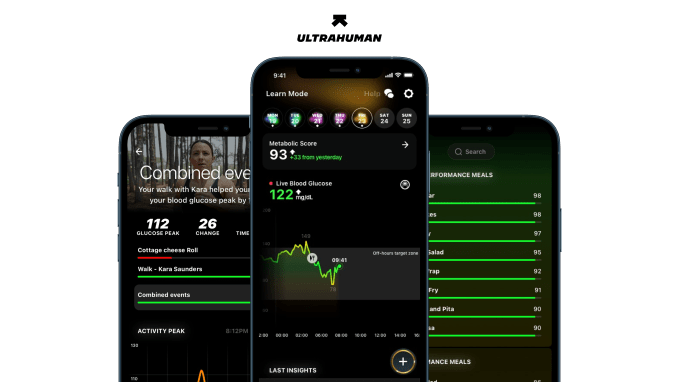News: Brex buys Weav, a universal API for commerce platforms, for $50M
Fintech Brex first partnered with Weav, a developer of a universal API for commerce platforms, last summer. In March, Brex launched Instant Payouts for Shopify sellers using the startup’s technology. The results were impressive enough that by April, Brex co-founders Henrique Dubugras and Pedro Franceschi participated in Weav’s $4.3 million seed round as strategic angel
Fintech Brex first partnered with Weav, a developer of a universal API for commerce platforms, last summer.
In March, Brex launched Instant Payouts for Shopify sellers using the startup’s technology.
The results were impressive enough that by April, Brex co-founders Henrique Dubugras and Pedro Franceschi participated in Weav’s $4.3 million seed round as strategic angel investors.
Over the past few months, the pair determined that Weav’s technology — and team — was too good to share. So today, the fintech is announcing that it is acquiring one-year-old Weav for $50 million in its first significant acquisition, TechCrunch has learned exclusively.
Interestingly, the deal was forged without the founders of either company having met — which may have been more unusual before the COVID-19 pandemic but is likely more commonplace these days. (Although they have since met.) Brex has previously made ‘acquihires’ but has not previously acquired both a company’s team and technology.
Brex started working with Weav “pretty early on” in the company’s life as a partner, Dubugras said.
“We were so impressed with [CEO] Nadav [Lidor] and his team, how fast they were building and how good the technology is, that we wanted to expand to a more strategic partnership,” he told TechCrunch. “Then, we started talking about an acquisition.”
TechCrunch talked with Dubugras and Weav CEO and co-founder Lidor to find out the details of the deal, and why it’s significant for both companies.
For one, as part of the acquisition, Brex will be expanding its global presence by building an “innovation hub” and hiring employees in Israel beyond Weav’s nine-person team, which is located in Israel and New York. CEO Lidor will head up Brex’s new Israeli office.
Besides expanding its global reach, the technology that Brex is acquiring will help accelerate the fintech’s connectivity of its platform, Dubugras said. Currently, Brex offers credit cards, business cash accounts, spend management and bill pay software together in a single dashboard for its customers. Its goal is to continue expanding its product and services portfolio to become “a fully-integrated and holistic financial platform for businesses.”
“Weav’s technology helps make Brex even better for our customers,” he said.
Founded last year by engineers Ambika Acharya, Avikam Agur and Lidor after participating in the W20 YC batch, Weav was among the wave of fintech infrastructure companies that aimed to give fintechs and financial institutions a boost. Specifically, Weav’s embedded technology was designed to give organizations access to “real time, user-permissioned” commerce data that they could use to create new financial products for small businesses.
Its products will allow customers to connect to multiple platforms with a single API that was developed specifically for the commerce platforms that businesses use to sell products and accept payments. Weav has operated under the premise that allowing companies to build and embed new financial products creates new opportunities for e-commerce merchants, creators and other entrepreneurs.
Since its inception last year, Weav’s API call volume has grown by 300% each month.
The increased adoption of cloud and SaaS technologies has led to data being stored in a variety of disparate systems. Weav’s API aims to build digital connections that enable automatic sharing and analysis, thus (as mentioned above) allowing commerce platforms to access their customers’ standardized transaction data in real time. This is important to Brex because the premise is that by using Weav, businesses can get financial services and new products “more quickly and precisely.”
“We want to build this all-in-one finance platform,” Dubugras told TechCrunch. “That was already the direction we were headed with the partnership but this acquisition helps us so that we can build a better integration across all our financial products, and we can do more, and a lot faster than what we were originally planning.”
For example, he added, Brex integrates with platforms such as Shopify. With the acquisition of Weav, it intends to build more lending, visualization and insights products for its customers.
“The Weav team will basically manage any third-party integration,” Dubugras said, “so that Brex can be your financial operating system no matter where your data is. You can have everything in one place.”
Lidor admits that Weav did not expect to be exiting so soon after founding. But the companies found themselves on the same page, he said.
“Our goal has always been to connect businesses, creators, and other entrepreneurs with fintech to expand financial access, and this aligns with Brex’s mission,” Lidor added. “After working with Henrique and Pedro, we realized they couldn’t be a better partner. We too were so impressed with the Brex team, and had a great time learning from them, and building with them.”
The company did not disclose its valuation at the time of its $4.3 million seed round earlier this year. The $50 million price tag represents a “healthy multiple for all involved,” Dubugras said.
The expansion into Israel is also exciting to the Brex team, which went remote last year amid the COVID-19 pandemic with operations in the United States, Canada and Brazil.
Founded in 2017, San Francisco-based Brex earlier this year was valued at $7.4 billion after raising a $425 million Series D led by Tiger Global. The company has raised $1.2 billion in debt and equity financing, according to Crunchbase data.
Earlier this year, the company announced it had put together a new service called Brex Premium that costs $49 per month.
“The number of premium subscribers that we now have definitely blew away our expectations,” Dubugras said.
In February, Brex was the latest fintech to apply for a bank charter.
The company, which sells a credit card tailored for startups, with Emigrant Bank currently acting as the issuer, had submitted an application with the Federal Deposit Insurance Corporation (FDIC) and the Utah Department of Financial Institutions (UDFI) to establish Brex Bank.
Earlier this month, the company said it would voluntarily withdraw its bank charter and federal deposit insurance applications.
“This will permit us to modify and strengthen our application and resubmit at a later date,” the company said. “We appreciate the support and thoughtful guidance from the Utah DFI and FDIC.”






 ICYMI: After a 4 year hiatus, Yik Yak is available in the App Store again!
ICYMI: After a 4 year hiatus, Yik Yak is available in the App Store again! Anonymity, location-based, the hot feed & more — everything you used to love about Yik Yak
Anonymity, location-based, the hot feed & more — everything you used to love about Yik Yak Now available on iPhone in the US — more countries and devices coming soon!
Now available on iPhone in the US — more countries and devices coming soon!
